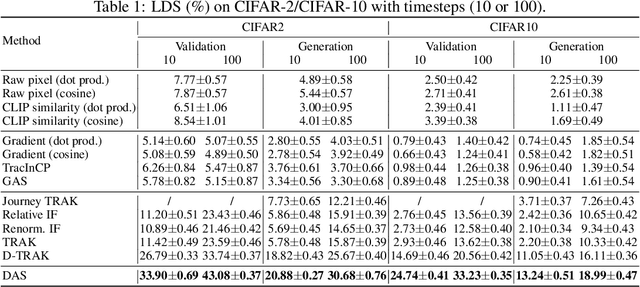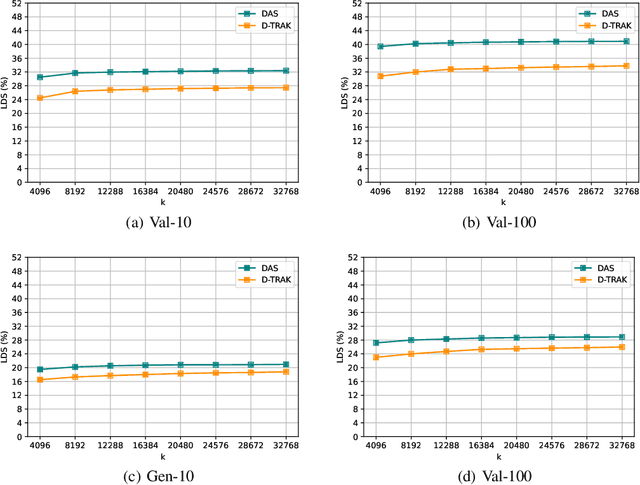Diffusion Attribution Score: Evaluating Training Data Influence in Diffusion Model
Paper and Code
Oct 24, 2024



As diffusion models become increasingly popular, the misuse of copyrighted and private images has emerged as a major concern. One promising solution to mitigate this issue is identifying the contribution of specific training samples in generative models, a process known as data attribution. Existing data attribution methods for diffusion models typically quantify the contribution of a training sample by evaluating the change in diffusion loss when the sample is included or excluded from the training process. However, we argue that the direct usage of diffusion loss cannot represent such a contribution accurately due to the calculation of diffusion loss. Specifically, these approaches measure the divergence between predicted and ground truth distributions, which leads to an indirect comparison between the predicted distributions and cannot represent the variances between model behaviors. To address these issues, we aim to measure the direct comparison between predicted distributions with an attribution score to analyse the training sample importance, which is achieved by Diffusion Attribution Score (DAS). Underpinned by rigorous theoretical analysis, we elucidate the effectiveness of DAS. Additionally, we explore strategies to accelerate DAS calculations, facilitating its application to large-scale diffusion models. Our extensive experiments across various datasets and diffusion models demonstrate that DAS significantly surpasses previous benchmarks in terms of the linear data-modelling score, establishing new state-of-the-art performance.
 Add to Chrome
Add to Chrome Add to Firefox
Add to Firefox Add to Edge
Add to Edge